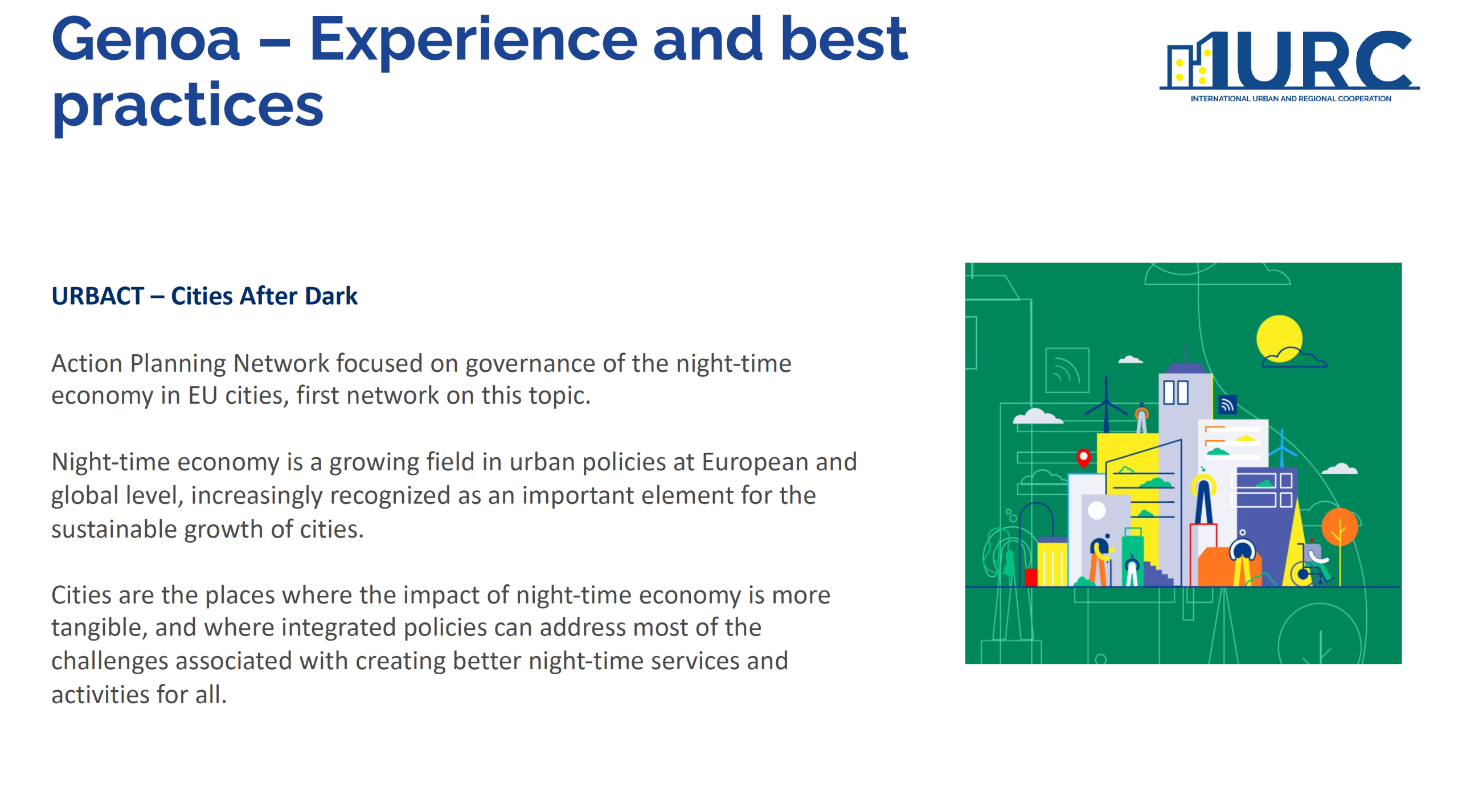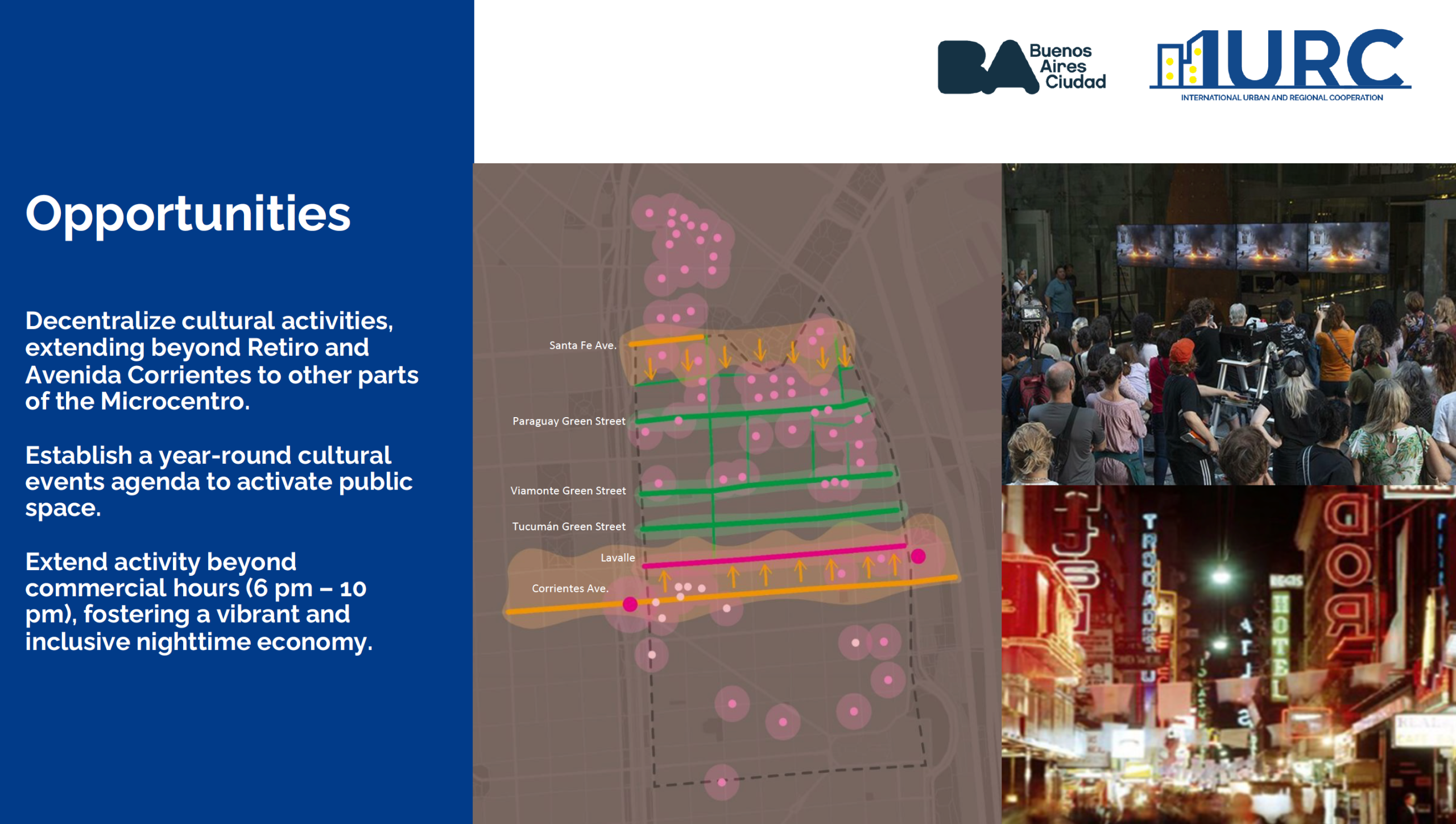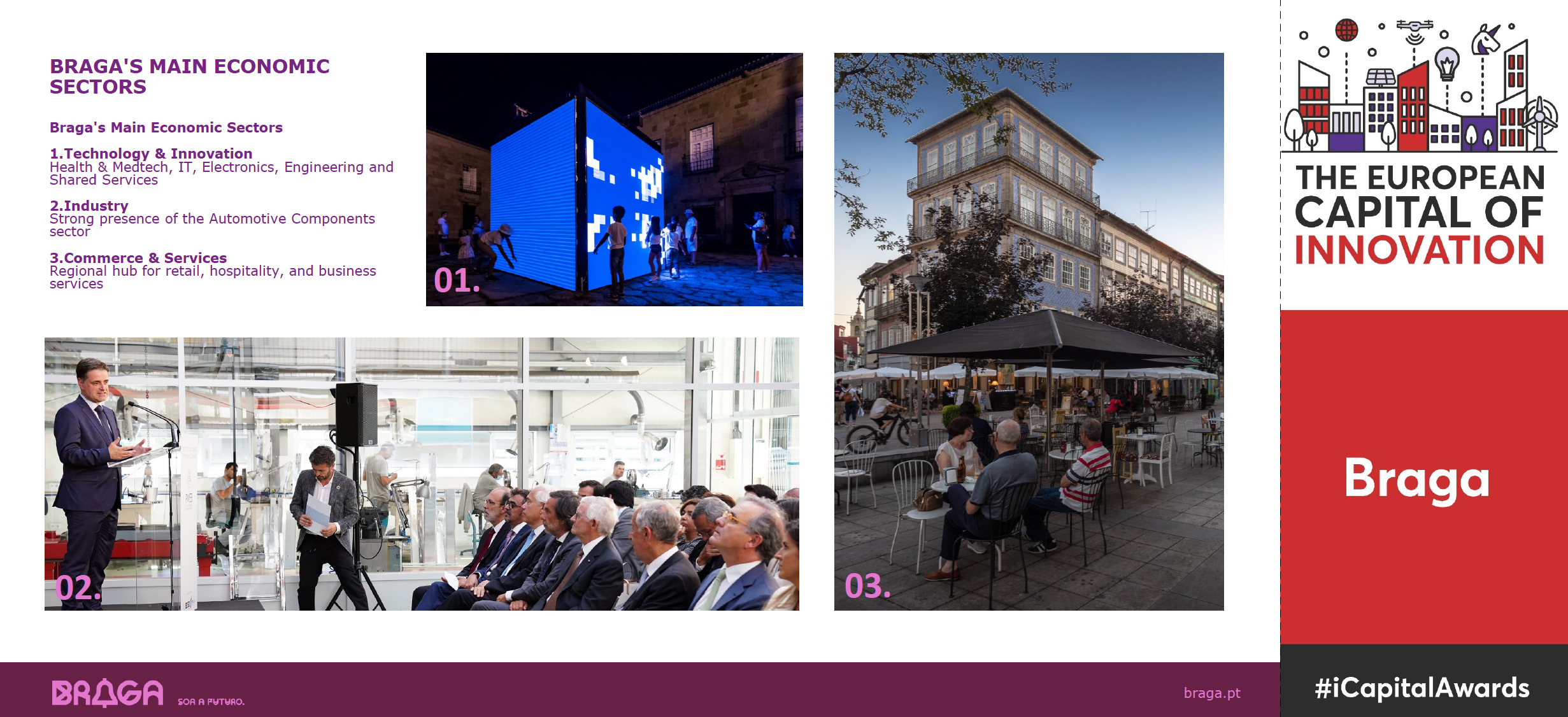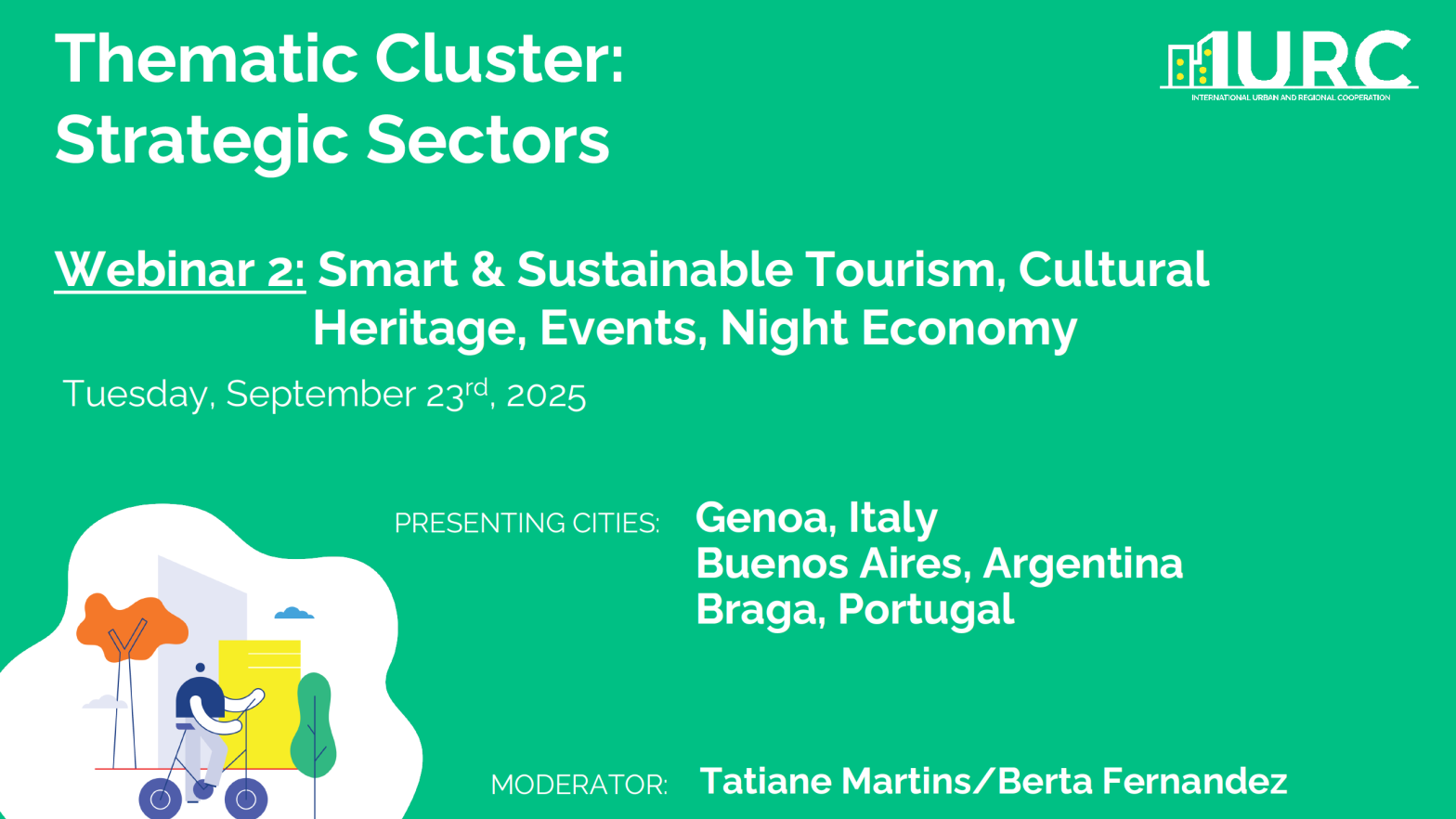On 17 September 2025, the International Urban and Regional Cooperation (IURC) Latin America and the Caribbean programme held its second webinar in the thematic network series, focusing on strategic sectors of urban development. With 24 participants, the session spotlighted how cities are reshaping their centers, balancing tourism and heritage, and creating vibrant nighttime economies.
Moderated by Tatiane Martins, the webinar featured presentations from Genoa (Italy), Buenos Aires (Argentina), and Braga (Portugal). The case studies demonstrated diverse pathways to manage tourism pressures, support cultural transformation, and build innovative governance models for nightlife management.
Genoa – From Industrial Hub to Cultural Capital
Gianluca Saba presented Genoa’s ongoing transformation from a traditional industrial hub into a city driven by culture, heritage, and sustainable tourism. He highlighted major milestones such as the city’s role in hosting the G8 Summit and its UNESCO World Heritage designation, both of which accelerated cultural regeneration.
Genoa’s approach includes projects like Cities After Dark, which studies the nighttime economy, and its active participation in the Urban Agenda Thematic Partnership on Sustainable Tourism. Through initiatives such as the Erit Adapt project, the city is diversifying tourism offerings while protecting the historic center and environment.
Saba stressed that urban governance structures play a decisive role: while each city has its own identity, sharing knowledge on governance models helps ensure that cultural vibrancy aligns with sustainable growth.

Buenos Aires – Revitalizing Nightlife Post-COVID
Juan Vacas described Buenos Aires’ strategy to reinvigorate its city center after COVID-19, with a focus on pedestrianization, tourism, and nightlife. The goal is to attract both younger and senior populations, making public spaces accessible and inclusive.
Key measures include:
- Improved lighting systems to enhance safety.
- Accessibility programs and new bus services to connect seniors with cultural hubs.
- Expansion of nightlife activities to boost economic vibrancy while maintaining community well-being.
The city is also exploring innovative governance models, including the possibility of a nighttime deputy mayor, reflecting a broader vision to integrate nightlife into citywide urban planning.

Braga – Building a 24-Hour Innovation City
Filipe Fernandes presented Braga’s identity as a technology and innovation hub, noting its recognition as a European Rising Innovative City. With a young population and entrepreneurial ecosystem, Braga is positioning itself as a leader in developing a 24-hour city strategy.
Braga leads the Cities After Dark Urbach project, which seeks to turn nightlife into an engine for inclusive economic development. Fernandes explained how the city has established specialized municipal councils and monitoring groups to coordinate across departments and stakeholders.
The city’s integrated action plan focuses on reducing governance fragmentation, ensuring public safety, and creating nighttime activities tailored to diverse communities and age groups.

Shared Challenges and Solutions
The discussion centered on how cities can manage nightlife in sustainable and inclusive ways. Braga’s model of governance councils, Buenos Aires’ neighborhood-level strategies, and Genoa’s cultural frameworks all underscored the value of stakeholder engagement. Participants agreed that the nighttime economy must be approached holistically—encompassing safety, mobility, environmental comfort, and economic opportunity.
